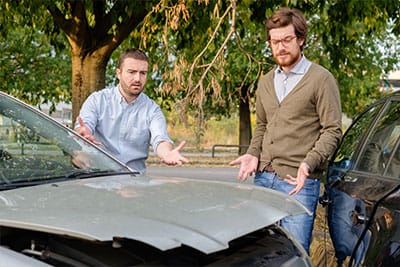What does modified comparative fault mean in West Virginia?
Understanding West Virginia’s comparative fault statute is imperative for anyone involved in a personal injury lawsuit.

Picture two vehicles approaching an intersection in West Virginia. A red car is going to go through a green light, though the driver is speeding and is not wearing a seatbelt. A blue car runs the red light, striking the red car and seriously injuring its driver. The injured party then files a lawsuit against the driver of the blue car, citing the negligent behavior of running a red light.
After listening to the case, the court returns a verdict in the injured party’s favor. However, the victim’s award is reduced based on the fact that the car was speeding and the driver was not wearing a seat belt, which the court viewed as contributing to the injuries.
This scenario illustrates West Virginia’s modified comparative fault statute, which is important to understand going into a claim regarding a personal injury.. It can determine what, if any, award a plaintiff stands to collect.
Eligible for recovery
According to the law, plaintiffs may still be eligible to recover damages if they are found to have had some degree of fault in the incident. However, if a court determines the plaintiff is more responsible for the incident than the defendant or defendants combined, then he or she is barred from recovery.
Effect on award
The way modified comparative fault works is that once the level of responsibility for each party has been determined, the court will assess the award accordingly. In a case in which a plaintiff is found to be 20 percent responsible and there is just one defendant who is found to be 80 percent responsible, the plaintiff’s award will be reduced by 20 percent.
The state’s law also addresses situations in which there are multiple defendants. In those cases, each defendant is only responsible to pay the amount for which he or she is found responsible, with the exception of the following:
- Someone charged with a DUI
- Someone who committed a crime
- Someone who illegally disposed hazardous waste
Those conditions aside, if there are two defendants each found 30 percent responsible for an accident, each owes only 30 percent of the total amount awarded.
However, West Virginia does permit a plaintiff who is unable to collect from a defendant to file a motion in court within a year of the judgment. That motion could end up in the reallocation of that portion of the award to be distributed among other defendants.
The law states that the burden of proof to illustrate comparative fault is on the party seeking to use it in the claim. For any personal injury lawsuit, it is imperative for a victim of negligence to seek help from an attorney.

